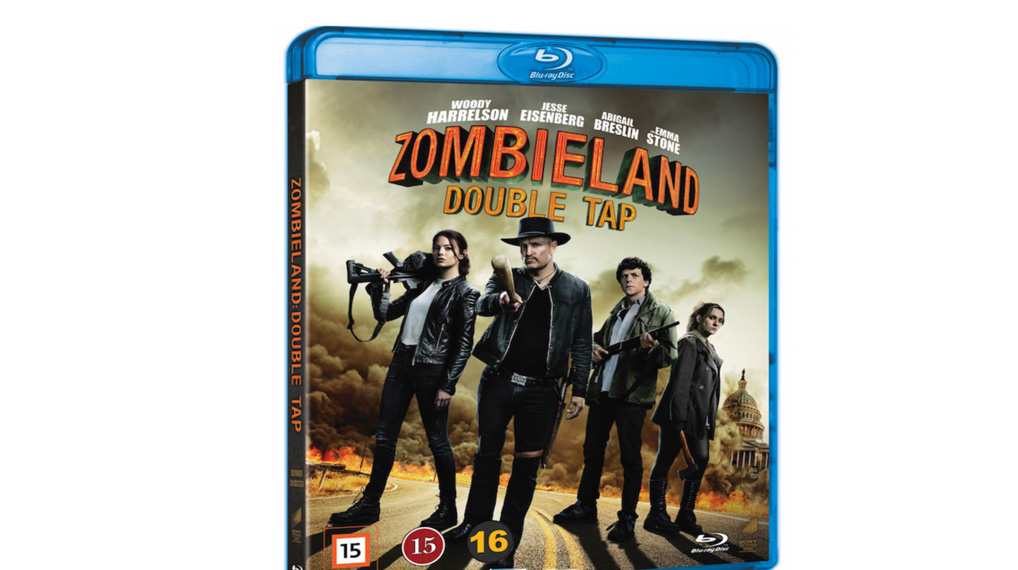TL;DR
The Zombieland sequel, Double Tap, failed to recapture the magic of the original, despite director Ruben Fleischer's return. While featuring competent action and some humor, the film suffers from underdeveloped characters, a regressive portrayal of Madison, and uninspired attempts to mirror its predecessor and other films. The Blu-ray offers good visuals and audio, but the overall experience is a disappointing letdown. Ready to dive into the details of why this sequel missed the mark? Read on to find out!
When the original Zombieland premiered eleven years prior (2009), it predated the advent of The Walking Dead franchise and its subsequent spin-offs. The film served as a counterpoint to the more serious zombie narratives prevalent in films such as Dawn of the Dead and 28 Days Later (acknowledging the technicality of the latter). Originally conceived as a TV series, Zombieland was adapted into a feature film by director Ruben Fleischer after failing to gain traction on television. The first film resonated due to its distinct humor, clever cinematic references, and unique subversion of established zombie tropes. While achieving popularity, a decade elapsed before the release of its sequel, Zombieland: Double Tap, in 2019.
Tallahassee (Woody Harrelson), Columbus (Jesse Eisenberg), Emma Stone (Wichita), and Little Rock (Abigail Breslin), having spent a decade together, establish their residence within the White House in Washington. This location provides a secure haven from the external threat of the undead. However, internal tensions arise, leading to a fracturing of the group. Tallahassee and Columbus encounter Madison (Zoey Deutch), another survivor, and bring her back to the White House, where she quickly develops an interest in Columbus. Wichita’s subsequent return, announcing Little Rock’s disappearance, necessitates reconciliation among the friends to facilitate a rescue mission.
Director Ruben Fleischer’s more recent work includes Venom, which was surprisingly well-executed and humorous. Consequently, the announcement of his return to the Zombieland universe with Zombieland: Double Tap generated high expectations. Regrettably, these expectations were not met. From the film’s opening, a sense of misalignment is evident, a feeling that persists throughout its duration. Fleischer’s direction appears to have struggled to elicit compelling performances from the actors, resulting in characters that lack depth and veer into caricature. While the original film possessed humor and absurdity, it also maintained a sense of heart and intelligence, elements that are notably absent in this sequel, replaced by overacting and uninspired comedic attempts.
Consider the character of Madison (portrayed by Zoey Deutch), whose portrayal feels anachronistic in a post-#metoo context. The character is presented as a stereotypical “ditzy blonde.” This feels regressive. The film offers no subversion or deeper understanding of the character; she remains consistently superficial. The question arises: How has she survived for a decade? How does she maintain pristine attire after a decade in isolation? These inconsistencies reflect a lack of attention to detail on the part of the filmmakers. While Zoey Deutch is a demonstrably talented actress, the decision to portray such a character is questionable. The absence of critical evaluation during the character’s development is perplexing.
The remaining portions of Zombieland: Double Tap are competently produced, featuring well-crafted action sequences. The film includes numerous references and moments of humor. However, these positive aspects are undermined by the introduction of Luke Wilson and Thomas Middleditch, playing characters analogous to Woody Harrelson and Jesse Eisenberg’s roles. This mirrors a similar comedic trope employed in Shaun of the Dead, even extending to similar costuming. The intention is to portray these characters as superior versions of the protagonists, but the sequence ultimately becomes protracted and lacks purpose.
Zombieland: Double Tap is not available in UHD format in the Swedish market, although a 4K edition exists internationally. Consequently, Swedish viewers are limited to the Full HD Blu-ray release. This edition offers acceptable visual quality, with a clear image exhibiting good sharpness and black levels. The DTS-HD audio track is similarly adequate, providing robust bass and clear dialogue. The supplementary materials are unusually comprehensive, offering informative and engaging, albeit brief, documentaries.
In conclusion, Zombieland: Double Tap is a disappointing sequel. Despite expectations for a film as witty and engaging as its predecessor, the result is a flawed attempt. The character of Madison, the derivative character copies, and the exaggerated portrayals of the original protagonists detract from the overall experience. However, the film retains some redeeming qualities (particularly a gratifying reunion during the end credits), and the Blu-ray edition is well-produced, warranting a passing grade.
